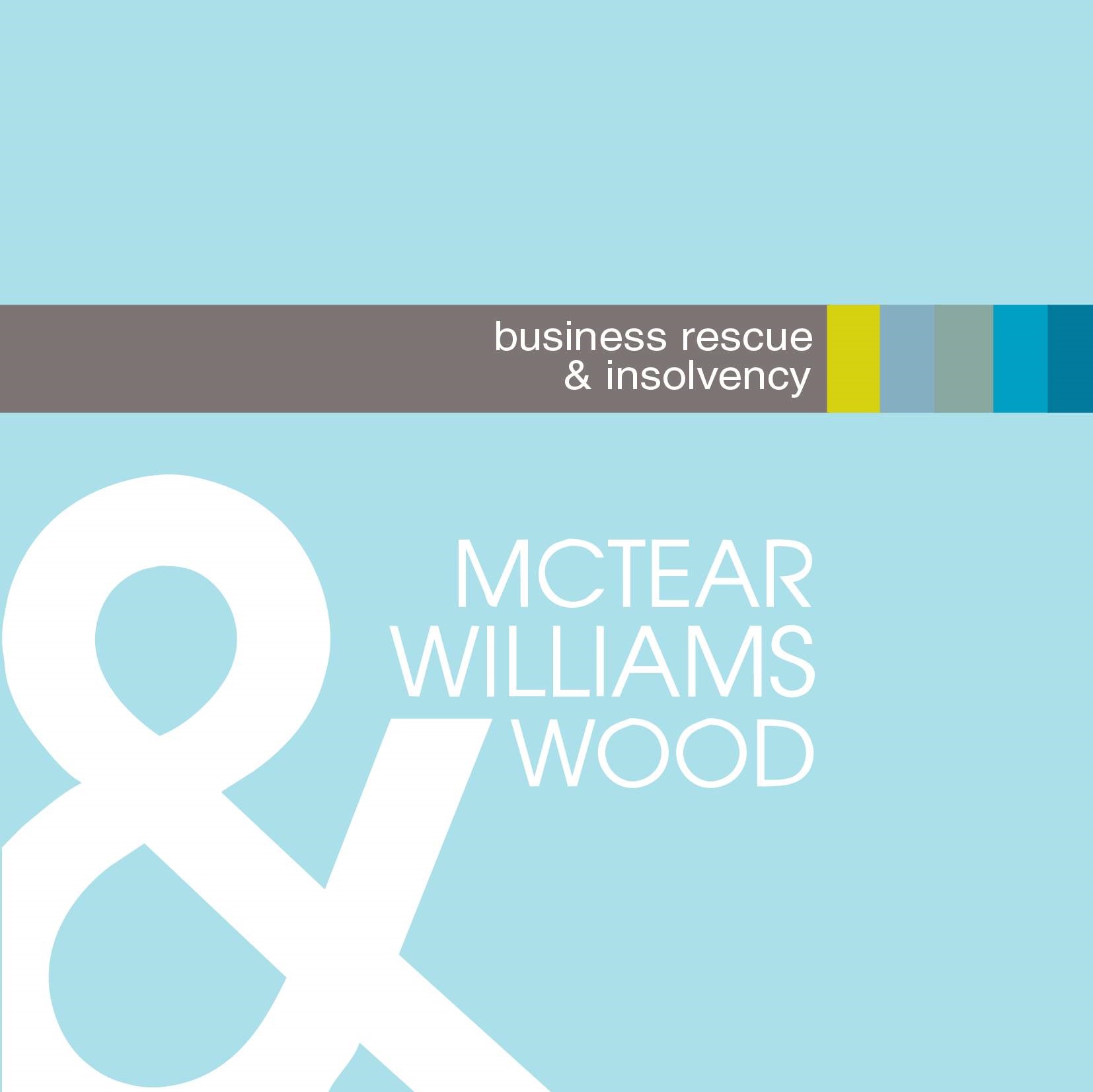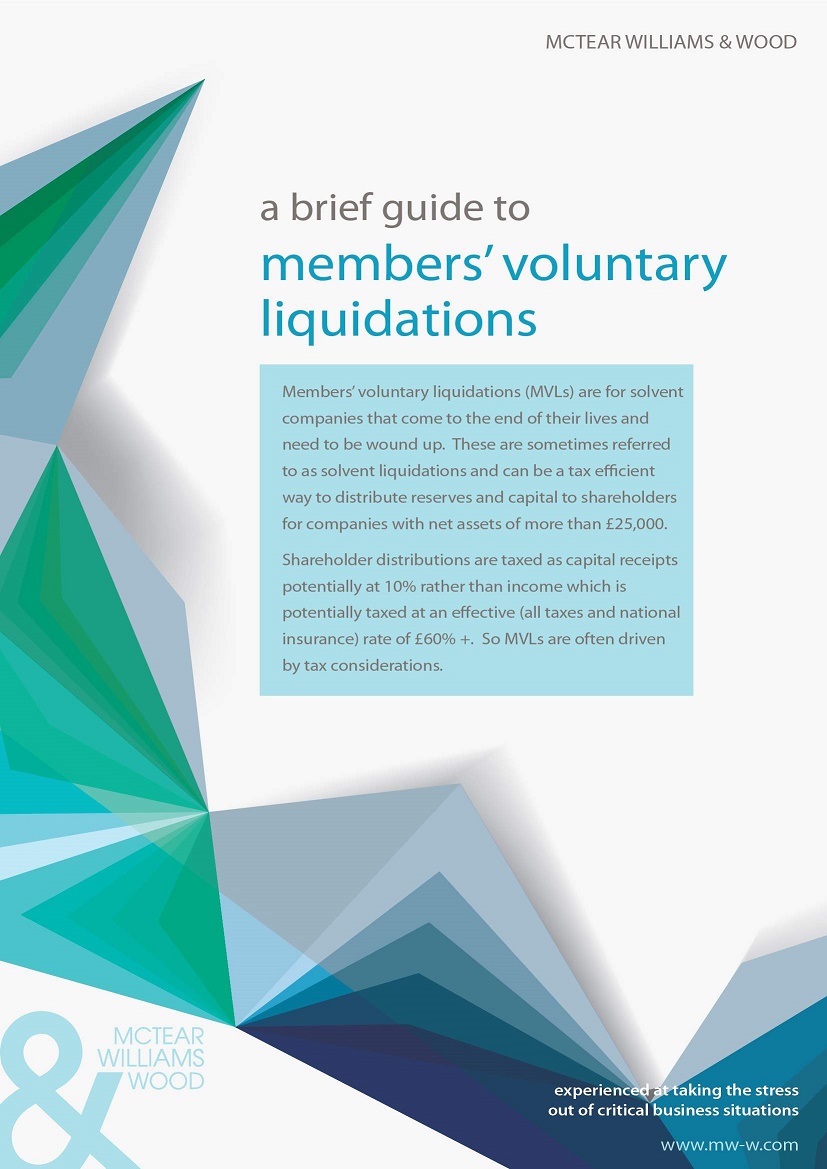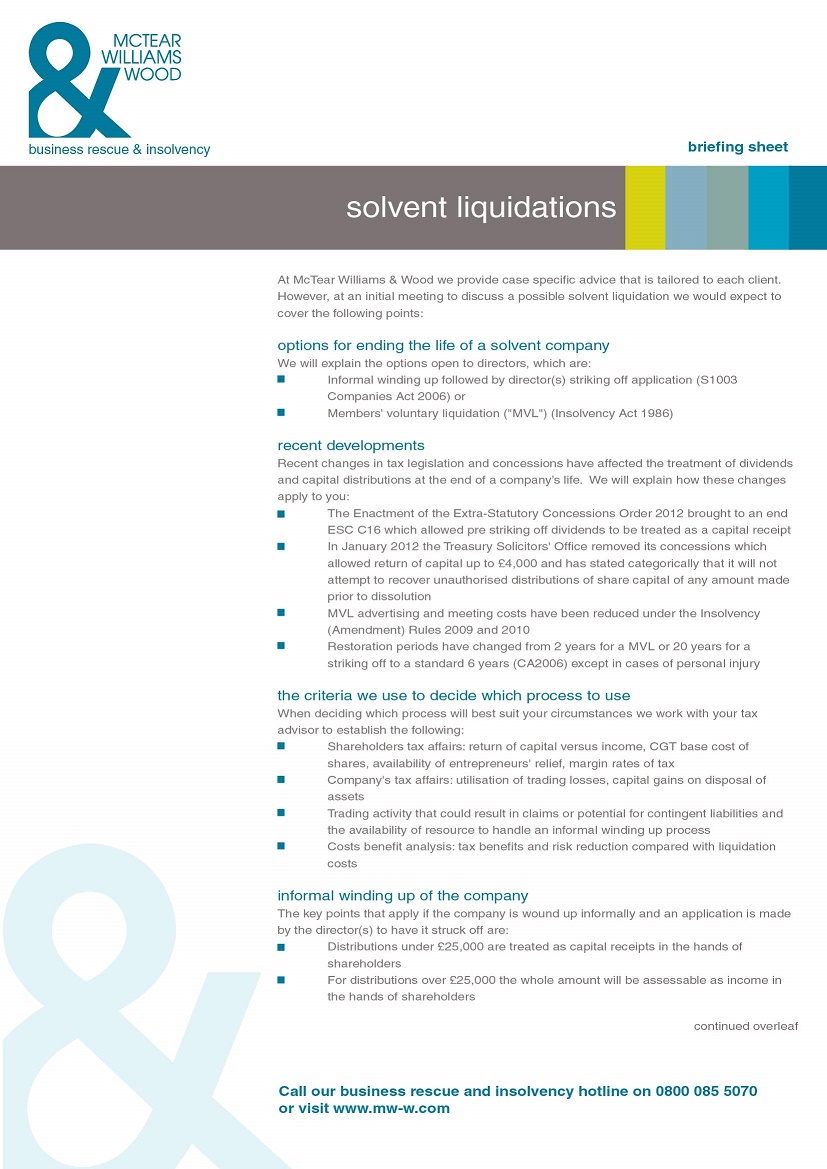MVLs and tax planning - big changes
HM Revenue & Customs has issued a consultation document on anti-avoidance measures to prohibit previously conventional routes for extracting cash from owner managed businesses as capital. The proposals will likely have far reaching implications on distributions from companies, particularly via solvent liquidations ("MVLs").
Government concerns
The
Government's main areas of concern are:
- "Moneyboxing", where the shareholders of a company retain profits in excess of the company's commercial needs and so receive these profits as capital when the company is eventually in liquidation.
- "Phoenixism", where a company enters into an MVL and a new company is set up to replace the old and carry on the same, or substantially the same, activities. The shareholder here receives all of the value of the company in a capital form while the trade continues - albeit now in the new company - exactly as before.
- "Special purpose companies", where the operations of a business are capable of being divided among separate companies, each undertaking a particular project. As each project or contract comes to an end, the company is liquidated and the profits and gains of that project are realised in a capital rather than income form.
New rules
The
consultation goes on to say that to address these issues the Government will
look to introduce new Targeted Anti-Avoidance Rules so distributions via an MVL
would be treated as income for tax purposes in situations where:
- an individual who is a shareholder in a close company receives from that company a distribution in respect of shares in a winding-up;
- within a period of two years after the winding-up the shareholder continues to be involved in similar trade or activity; and
- the arrangements have a main purpose, or one of the main purposes, of obtaining a tax advantage.
It is not
just MVLs that are in their sights, other procedures include third party sales
of retained profits which may otherwise have been paid out in dividend form had
the company not been sold and repayments of share capital, including a company
purchase of its own shares. Little detail is provided about the other two
areas, the consultation concentrates on MVLs.
The
consultation runs until 3 February 2016 and the new draft legislation is
expected to be part of Finance Act 2016 and come into force on 6 April
2016.
What should you do?
If you have
a client who would like to get the benefits from an MVL before there are any
changes action will need to be taken by 5 April 2016. It may be more
prudent to act by 16 March 2016 (the date of the 2016 Budget) if possible.
For more information
Additional details about MVLs can be found on our website by downloading the solvent liquidations briefing sheet or alternatively you can download the full consultation document. If you require specific advice please contact Gary Rupping garyrupping@mw-w.com or Gerard Smith gerardsmith@mw-w.com on call us now on 0800 331 7417.



